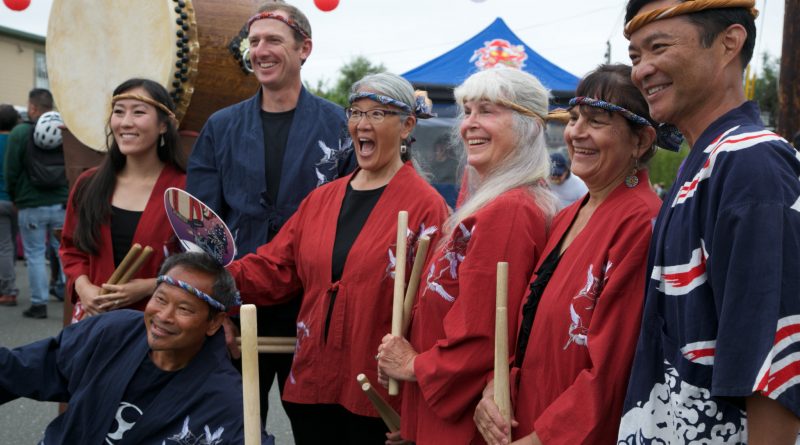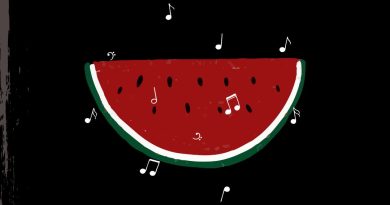Humboldt County’s first Obon Festival
Japanese music filled the air outside the Arcata Playhouse on 9 St. at Humboldt’s first Obon Festival. A big white tent sat just past the center stage, greeting attendees with a silent auction and a six foot twinkling LED cherry blossom tree inside. Slips of white paper with handwritten notes and pictures of passed loved ones adorned the cherry blossom tree, which served as an altar.
Obon is a Japanese Buddhist tradition to honor and remember past ancestors. It’s believed to be a time when the ancestor’s spirits come to visit. Offerings and gifts are left for the spirits of visiting ancestors to enjoy. The event was hosted by HAPI (Humboldt Asians and Pacific Islanders in Solidarity) on Aug. 14. Marylyn Paik-Nicely, one of HAPI’s founders and organizer of the Obon Festival, explained the significance of observing this custom on Aug. 14.
“We found out that in Japan today [Aug. 14] is the day that the ancestors come to earth, and that is their Obon. So I’m like ‘Wow that’s so serendipitous’,” Paik-Nicely said.
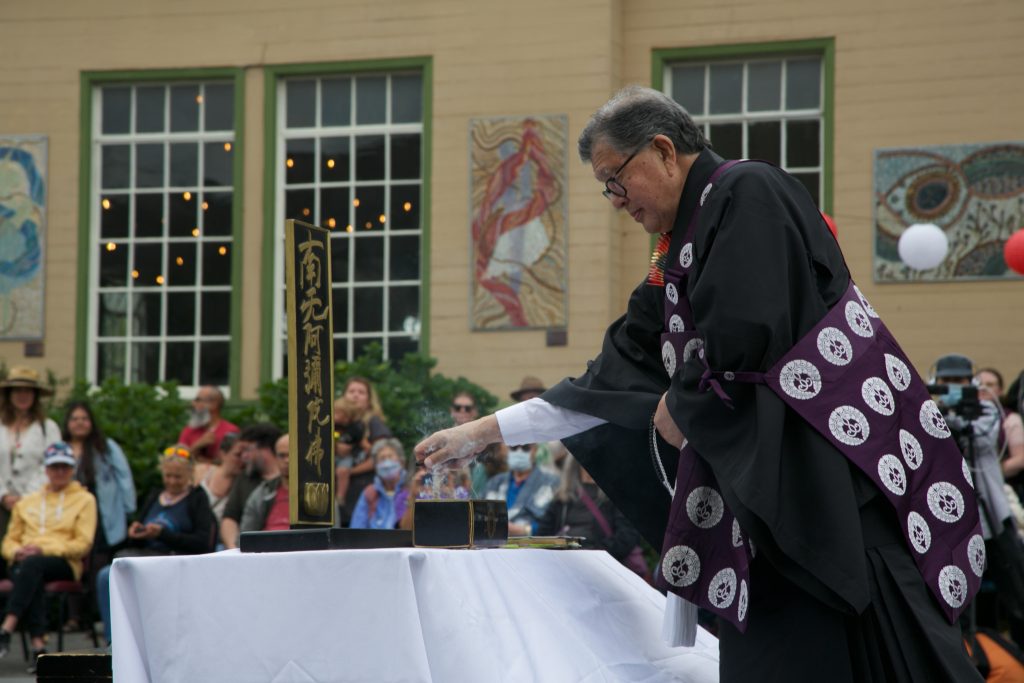
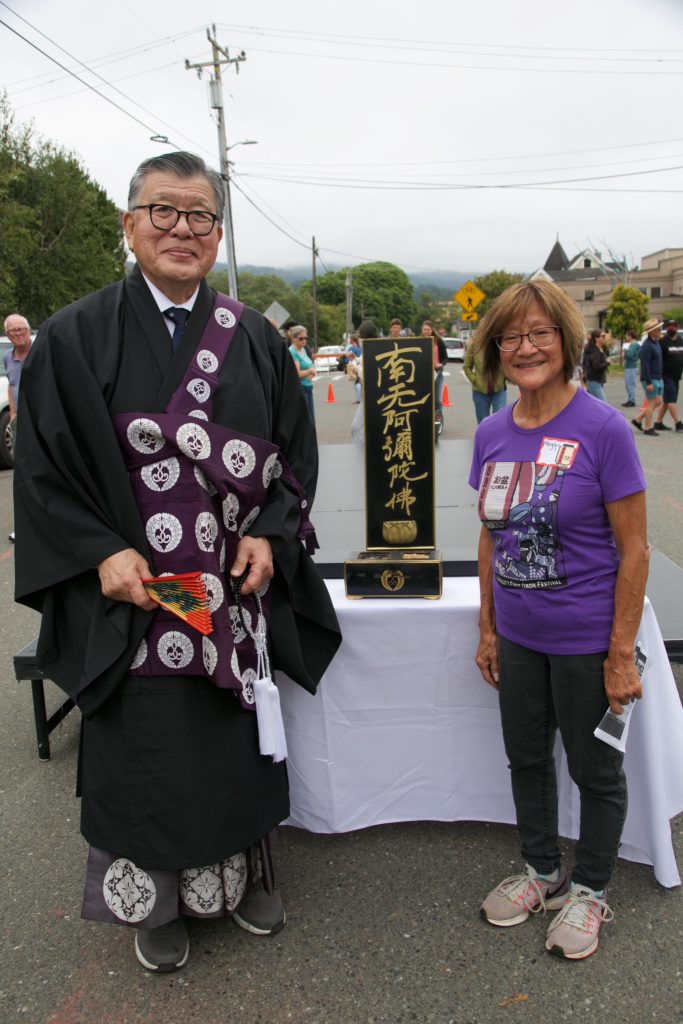
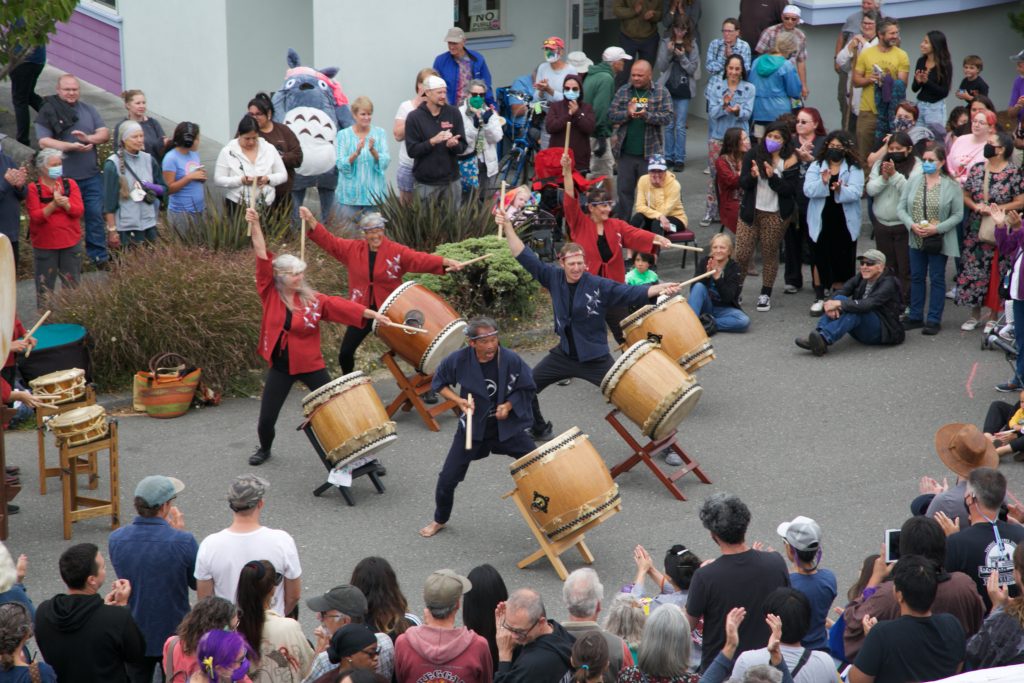
Across from the main tent was an ensemble of taiko, traditional Japanese drums, in different sizes. Gary Ronne, founder of Humboldt Taiko, led two taiko performances that could be felt in the audiences’ chest with each beat of the drum. Ronne explained how playing at Humboldt’s very first Obon festival was a memorable experience for him.
“It’s so great getting the community together, and in a way saying ‘Hey remember that first Obon festival in Humboldt? I kinda helped start it’,” Ronne said.
Humboldt’s Obon festival was an opportunity to bring the community together and share parts of Japanese culture. It served as a cultural educational experience for some, and a proud moment of cultural representation for others.
“It’s great to bring a different culture to Humboldt, to our own small universe,” said Ronne. “Seeing the crowd today, I think this is probably the largest crowd in Humboldt I’ve ever seen wearing kimonos.”
Craig Kurumada led two interactive Bon Odori performances.Bon Odori is a dance performed at Obon Festivals. Audience members were encouraged to participate in the dances, creating large circles of synchronized movement around the central stage where Kurumada led. Kurumada grew up with Bon Odori since his childhood and has been teaching it for about 15 years now.
“The nature of these dances is very communal, it’s not pairs or couples,” Kurumada said. “One of the most beautiful things I love about it is seeing this big circle of people and we’re all moving in unison.”
Kurumada explained the significance of performing Bon Odori. To him the act of dancing is a physical way of commemorating individuals who have passed.
“Dancing is expressive of how to release the spirit from the Starving Ghost, and the idea of just celebrating the life of the people who have gone before you,” Kurumada said.
Talks of an Obon festival in Humboldt started at the beginning of 2020, however the COVID-19 pandemic postponed this event from happening for two years, according to Paike-Nicely. All of the planning leading up to Humboldt’s first Obon festival took place a couple months before the event.
“People from so many different backgrounds [came together]. They’re not all Japanese, but they had some experience in their childhood or they grew up with it,” Paik-Nicely said. “It was really wonderful that all these different ideas came together.”
HAPI has plans to expand next year’s Obon festival and keep this celebration as an annually occurring event.
For more information about HAPI check and upcoming events out their website hapihumboldt.org or follow them on Instagram @hapihumboldt.

